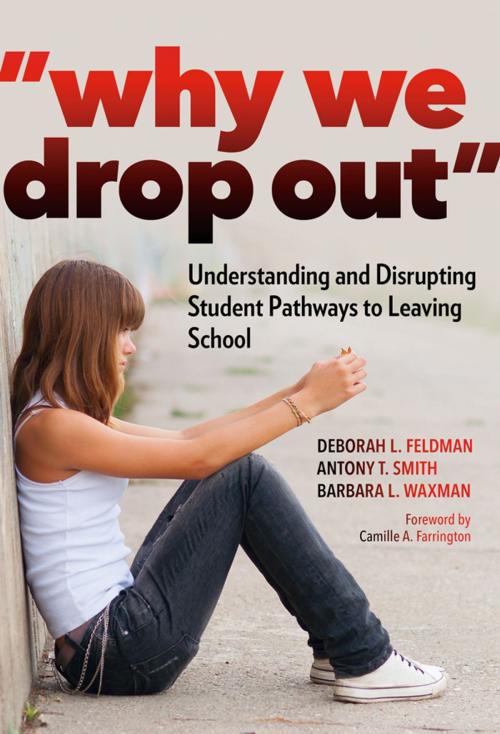"Why We Drop Out"
Understanding and Disrupting Student Pathways to Leaving School
Nonfiction, Reference & Language, Education & Teaching, Educational Theory, Leadership, Counseling & Guidance, Philosophy & Social Aspects| Author: | Deborah L. Feldman, Antony T. Smith, Barbara L. Waxman | ISBN: | 9780807776162 |
| Publisher: | Teachers College Press | Publication: | December 15, 2009 |
| Imprint: | Language: | English |
| Author: | Deborah L. Feldman, Antony T. Smith, Barbara L. Waxman |
| ISBN: | 9780807776162 |
| Publisher: | Teachers College Press |
| Publication: | December 15, 2009 |
| Imprint: | |
| Language: | English |
Through engaging stories and the use of students’ voices, this book corrects persistent misconceptions about youth who drop out of high school. Based on research conducted with high school dropouts in both urban and rural communities, the authors argue that, contrary to popular belief, most dropouts are not disengaged from school at an early age. Many have positive memories of their education, both social and academic, that educators and policymakers can draw on to create successful prevention and intervention practices. The narratives and insights presented here will help readers to better understand the interplay of school-related and personal factors that lead students to drop out of school. “Why We Drop Out” is essential reading for K–12 educators, school principals, counselors, psychologists, and everyone concerned with our nation’s dropout crisis.
“Every educator will recognize in these stories the daily opportunities that adults have to reach out and grab onto kids who are desperate for a hand and just need someone to pull them over that line.”
—From the Foreword by Camille A. Farrington, PhD, author of Failing at School: Lessons for Redesigning Urban High Schools
“This book greatly improves our understanding of the complex and long-term process of dropping out of high school.”
—Russell W. Rumberger, UC Santa Barbara, director, California Dropout Research Project
“A must-read for any teacher, principal, or superintendent interested in changing the lives of our students most at risk.”
—Greg Baker, superintendent, Bellingham Public Schools
“This is a book that everyone with a stake in education must read!”
—Dr. Shivohn Garcia, SUNY Empire State College
Through engaging stories and the use of students’ voices, this book corrects persistent misconceptions about youth who drop out of high school. Based on research conducted with high school dropouts in both urban and rural communities, the authors argue that, contrary to popular belief, most dropouts are not disengaged from school at an early age. Many have positive memories of their education, both social and academic, that educators and policymakers can draw on to create successful prevention and intervention practices. The narratives and insights presented here will help readers to better understand the interplay of school-related and personal factors that lead students to drop out of school. “Why We Drop Out” is essential reading for K–12 educators, school principals, counselors, psychologists, and everyone concerned with our nation’s dropout crisis.
“Every educator will recognize in these stories the daily opportunities that adults have to reach out and grab onto kids who are desperate for a hand and just need someone to pull them over that line.”
—From the Foreword by Camille A. Farrington, PhD, author of Failing at School: Lessons for Redesigning Urban High Schools
“This book greatly improves our understanding of the complex and long-term process of dropping out of high school.”
—Russell W. Rumberger, UC Santa Barbara, director, California Dropout Research Project
“A must-read for any teacher, principal, or superintendent interested in changing the lives of our students most at risk.”
—Greg Baker, superintendent, Bellingham Public Schools
“This is a book that everyone with a stake in education must read!”
—Dr. Shivohn Garcia, SUNY Empire State College















